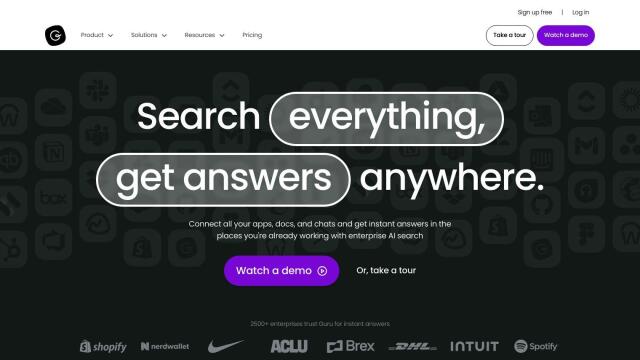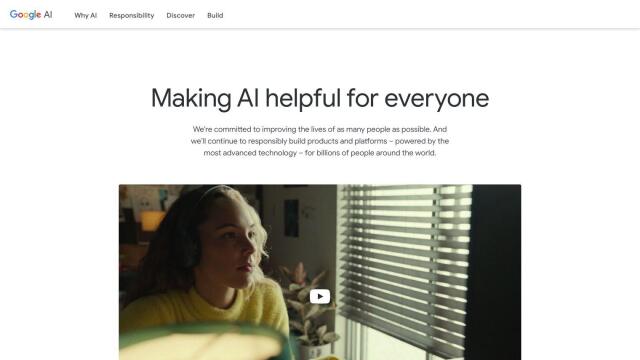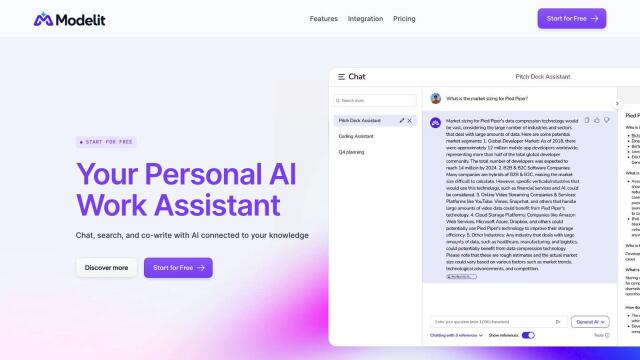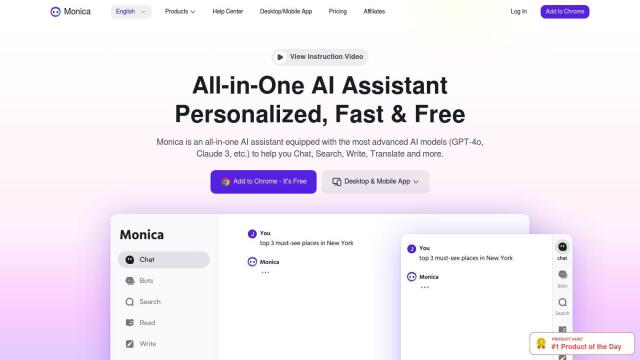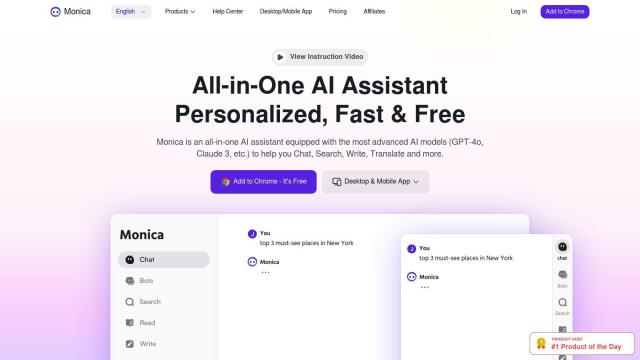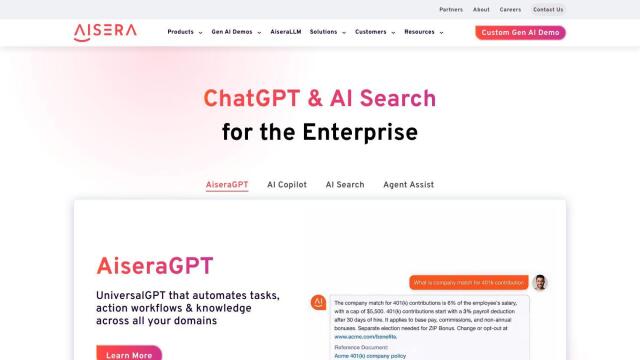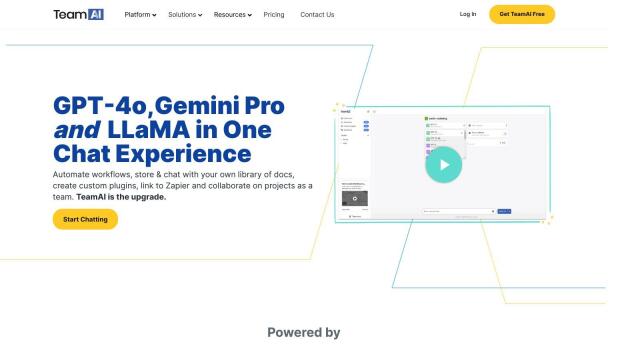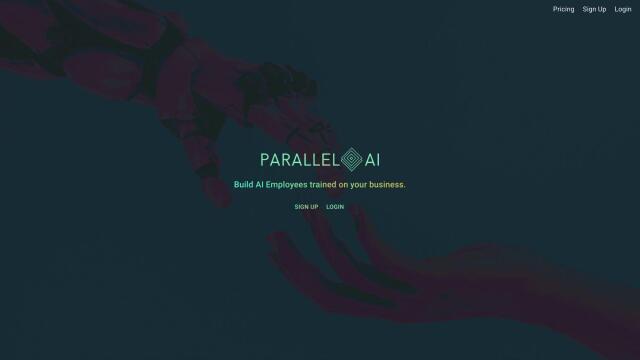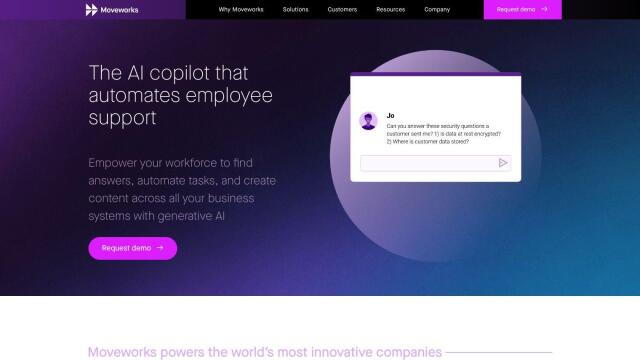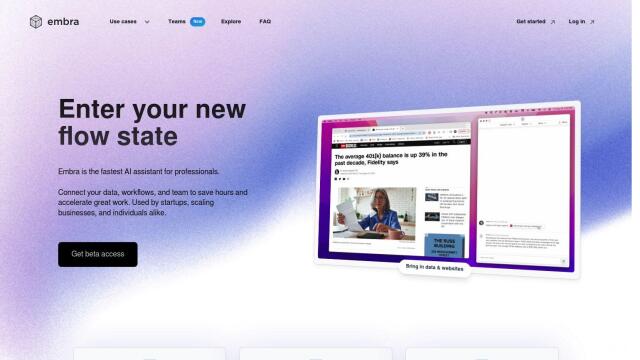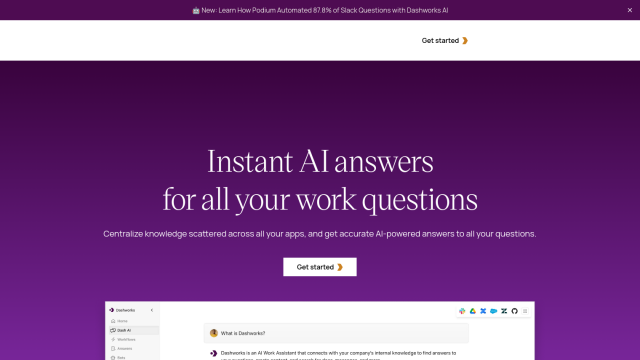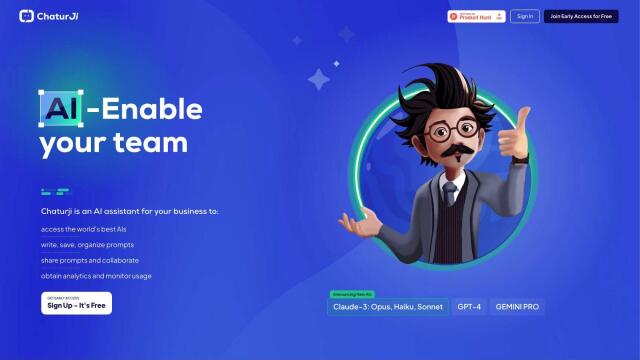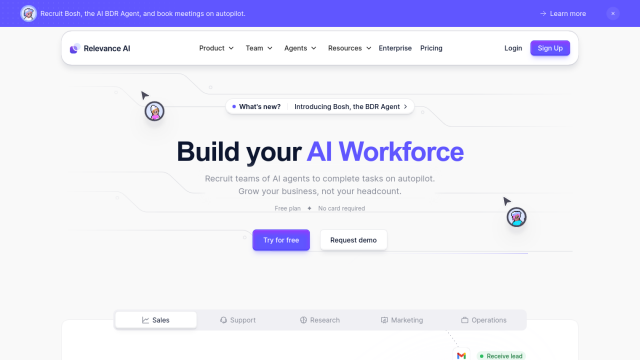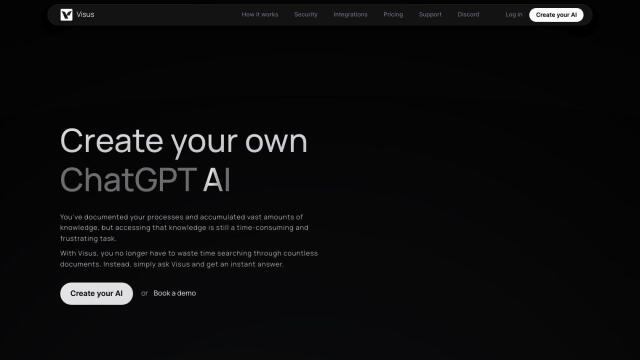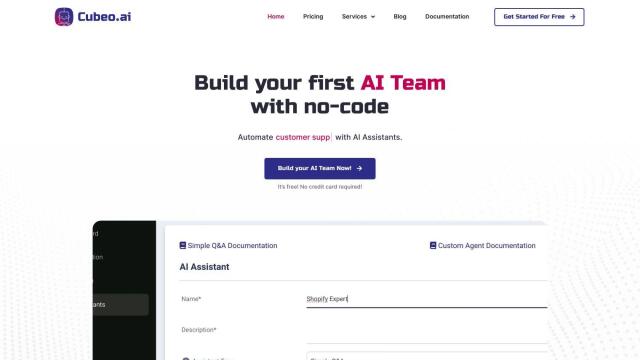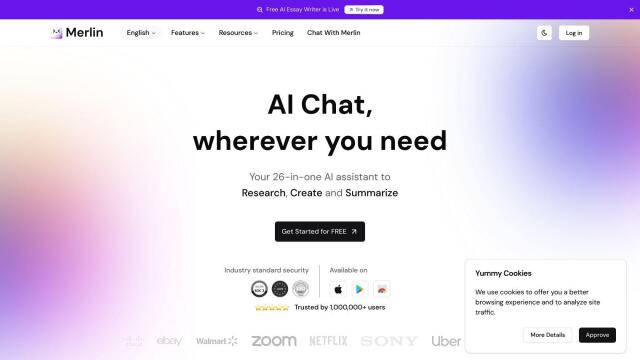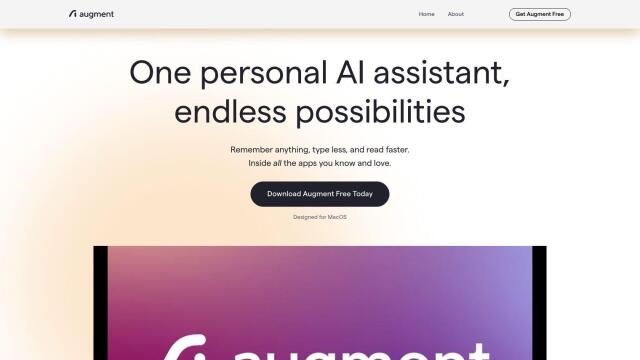Question: I'm looking for a unified AI experience that integrates with multiple tasks and applications, do you know of any solutions?

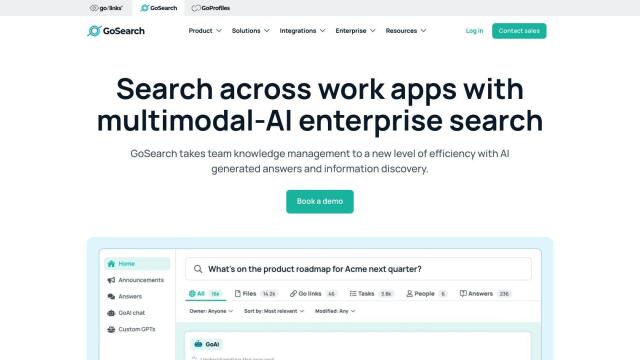
GoSearch
If you want a unified AI experience that spans many tasks and tools, GoSearch is a top contender. This service uses multimodal AI technology to provide instant answers and information discovery across internal sources. It can be connected to more than 100 data connectors so you can search and retrieve documents, notes, tasks, files and people across cloud apps like Google Docs, Notion, Jira and Confluence. GoSearch also offers AI-powered recommendations, personalized chat support and custom GPTs for enterprise use.

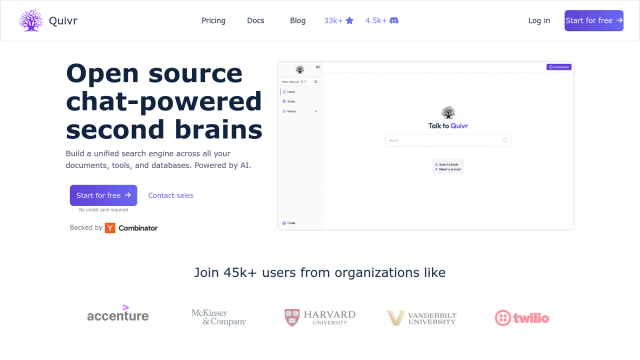
Quivr
Another contender is Quivr, an open-source personal productivity assistant that offers a unified search engine across documents, tools and databases. Quivr uses retrieval-augmented generation for privacy and can be connected to a variety of file formats and apps. It can connect to files, APIs, databases and custom integrations, making it a good option for individuals and teams.

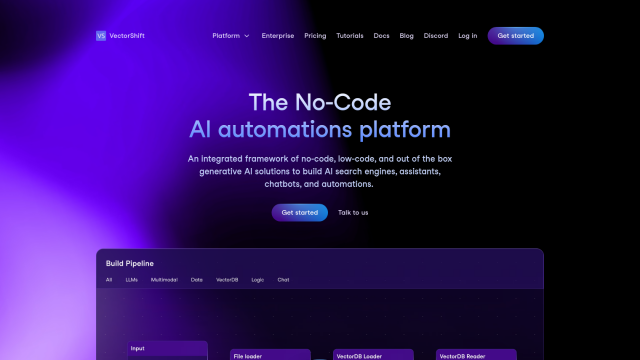
VectorShift
VectorShift is another top contender, an end-to-end AI automation platform that comes with a no-code interface and a code SDK for API access. It can be connected to common tools like Google Drive, OneDrive, Salesforce and Notion, and can be used to build AI-powered applications like search engines and chatbots. VectorShift's marketplace has more than 60 pre-built pipelines for automating workflows, so it's a good option for a variety of use cases.

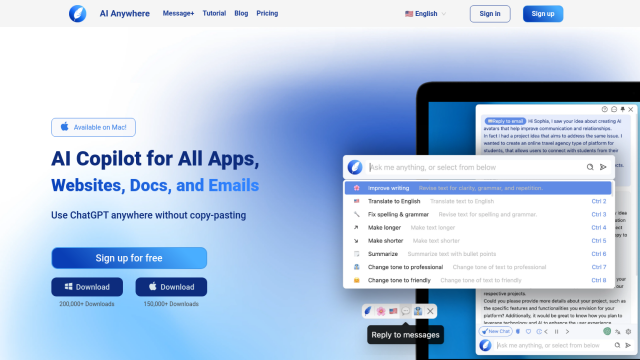
AI Anywhere
If you want an integrated AI copilot, AI Anywhere is a good option that spans many apps, documents, emails and websites. It lets you read, write and code without having to copy and paste, and it's got a Quick Action option for tasks like translation and summarization. The AI Anywhere Pro version adds GPT-4 access and custom prompts, too, so it's a very flexible AI assistant.

